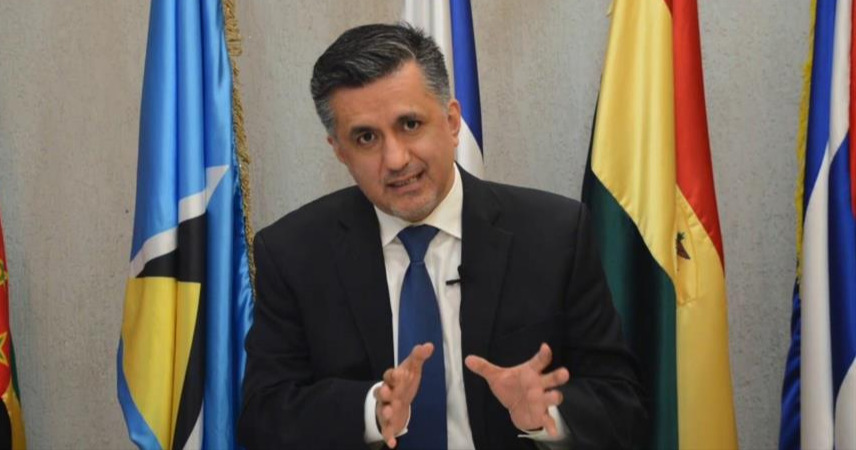
Sacha Llorent Executive Secretary of ALBA-TCP
Caracas, July 31 (RHC)-- The Executive Secretary of the Bolivarian Alliance for the Peoples of Our America-People's Trade Agreement (ALBA-TCP), Sacha Llorenti, condemned today the new U.S. sanctions against Cuban officials and institutions.
In a message posted on the social network Twitter, the head of the regional integration bloc reiterated the illegal nature of the illegitimate lists issued by the U.S. government as part of its hostile policy against the island and other nations of the world.
"... Cuba is synonymous with dignity, resistance and solidarity. On the other hand, the U.S. is synonymous with outrages, invasions and plundering," Llorenti emphasized on Twitter.
The day before, Cuban Foreign Minister Bruno Rodríguez strongly rejected Washington's sanctions against the National Revolutionary Police (PNR) and its two main officers.
On his Twitter account, the foreign minister condemned the inclusion of the police force and its top officers in the spurious lists drawn up by Washington. "These arbitrary measures add to the disinformation and aggression to justify the inhumane blockade against Cuba,' he asserted.
The Office of Foreign Assets Control (OFAC) of the U.S. Treasury Department issued this Friday new provisions against the PNR and two of its directors, Oscar Callejas and Eddy Sierra, for alleged abuses during the riots of last July 11th.
Under the Global Magnitsky Act, they were included on the list of the so-called Specially Designated Nationals (SDN), whose assets are frozen and cannot travel to the United States.
The U.S. administration applied these measures for allegedly violating human rights during the demonstrations, although videos show vandalism and attacks against law enforcement officers and state property.
Under similar pretext, last week OFAC also sanctioned the Minister of the Revolutionary Armed Forces, Army Corps General Alvaro Lopez Miera, and the National Special Brigade of the Ministry of the Interior.
According to Cuban authorities, these restrictions are irrelevant from a practical point of view, but politically they do have implications, since they are part of the aggressive escalation promoted by Washington, which even pressures third countries to make pronouncements and take positions against Havana.

